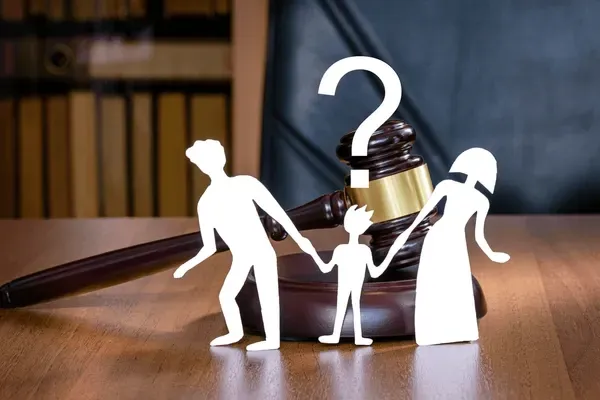How Relocation During a Divorce May Affect Family Life
Relocation to Be Closer to Family During a Divorce

During a divorce, it is not uncommon for one of the spouses to need the support of their family. The situation can get complicated if their relatives are living in another state, for example. The spouse would often want to take the kids and move so they can be close to the family and get financial and emotional help. However, the legal details surrounding it can be a bit complicated even for an experienced divorce attorney. In fact, it is quite difficult to predict how such a case might unfold. In this article, we will take a look at what the law says when it comes to relocation during a divorce.
Why Can Relocation During a Divorce Be an Issue?
Picture Charlotte, a stay-at-home-mom, and her husband Jake, who is between jobs as a construction worker. They are originally from New Hampshire but moved to North Carolina eight years ago. Since then, the two had a son. The stress of unemployment and financial uncertainty weighs heavily on Jack. He has not managed to secure a job for some time, which has had an adverse effect on his mood and attitude toward his family. As a result, Charlotte and Jake’s marriage has been suffering enormously and they have decided they should divorce. There are no ill will or hard feelings at work — they have just realized that they need to take different paths in life.
Charlotte does not want to remain in North Carolina and would like to move back to New Hampshire with her son, as she will need the help of her extended family. Jake, on the other hand, has no desire to move back and wants to stay in North Carolina. However, he would like to remain close to his son and work on their relationship — that would be impossible if Charlotte takes him to New Hampshire.
Let’s imagine that Jake objects to the move, hires a divorce attorney, and files a lawsuit to stop Charlotte. How will the state resolve this situation?
There are multiple scenarios that can play out, depending on a variety of factors. In the paragraphs below, we will outline the most common ones and see how they play out.
Are There Other Relatives Living in North Carolina?
For our example, let’s assume that neither Charlotte nor Jake have any other family members living in North Carolina. Their son has a great relationship with his extended family back in New Hampshire. In fact, he and his parents often took trips to New Hampshire to visit their relatives and spend some time with them.
The fact that Jake is currently unemployed will certainly make a difference during the trial. Under such circumstances, the judge will be more inclined to let Charlotte and the kid move to New Hampshire. On the other hand, if the boy is going to school and has close friends in North Carolina, that might tip the scales the other way. After all, removing children from a place where they are happy is not advisable. Any divorce attorney will take that into account when handling the case.
Let’s say that Jake manages to find a job before the trial starts and is capable of providing for his son. His divorce attorney might argue that the child needs to stay in the same state as his father, who will be able to support him and his mother financially. After all, one of the reasons Charlotte wants to move to New Hampshire is that she will need the financial help of her family. In law, the relationship between a child and a parent trumps that between a child and any other relative. In this case, the judge might refuse Charlotte’s request to take the boy and move to New Hampshire.
What If There Are Relatives Living in the Current State?
Let’s imagine that Jake’s sister also lives in North Carolina and has a close relationship with her nephew. She is helping out in any way she can and continues to be close to the family. On top of that, Charlotte appreciates the help she receives from her sister-in-law. However, Charlotte would much rather have the assistance of her own family in New Hampshire. Even though she will miss her sister-in-law, Charlotte would prefer to move.
In such a scenario, the court might take into account that the child has blood relatives in North Carolina. It does not matter that they are technically Jake’s family — they provide a caring environment where the child can thrive. Suddenly changing the child’s life might have an adverse effect on his mental health. In this situation, the judge will most likely rule that Charlotte must stay in North Carolina, along with the child.
The bottom line is that the separation and relocation need to be beneficial for the children — not necessarily for the parent who wants to leave. Any court will take the well-being of the children as the most important factor when deciding on a case of this manner.
A Factual Example of a Post-Divorce Relocation Case
Recently, there was a similar case before a North Carolina court. The recently-divorced couple lived in the state, but all their relatives were in Oklahoma. They had one child who was often neglected by the father. The custody of the child was still argued over in court. What complicated things was the fact that the father suffered from an ongoing substance abuse problem. As a result of that, he could not pay the court-mandated child support and was allowed only supervised visits.
The mother, on the other hand, lost her job, and found herself needing help raising and providing for the child. She wanted to move back to Oklahoma and discussed the matter with her ex-husband, who did not approve of the idea. Still, she has already made the decision and was going to move regardless of her ex-husband’s opinion. In order to prevent her from moving to Oklahoma with their kid, he filed a lawsuit.
There was a hearing during which the judge granted the mother full custody and allowed her to move to Oklahoma with the child. The fact that the father had a substance abuse problem, did not pay child support, and was overall negligent of his child played a huge role in this decision. However, the judge did give the father visitation rights once a month.
Had the father been an upstanding citizen who did not suffer from all the problems above, the judge’s ruling might have been quite different.
How Are Post-Divorce Relocation Cases Resolved?
Unfortunately, such cases are quite difficult to analyze, since they involve a lot of complicating factors. Most judges already have positions on such issues and would rule accordingly in the majority of cases presented to them. If you face such a situation, you need to request the assistance of a qualified divorce attorney in your area. There is a good chance that your divorce attorney will be familiar with the local judges and their predispositions.
However, it is not uncommon to encounter freshmen judges who do not have any background in family law whatsoever. In such cases, the facts of the case are all that matters. As you’ve read in this article, there are a variety of factors that can affect how the case goes and what the outcome of any litigation would be. It is impossible to pinpoint a rule when it comes to cases involving relocation after divorce. Each scenario is more or less unique.
You need to have the facts on your side and to be able to present them clearly in court. Tendencies show that judges will often prioritize the well-being of the children, so make sure you keep that in mind. Hiring an experienced divorce attorney in North Carolina is the best thing you can do to polish your case.












